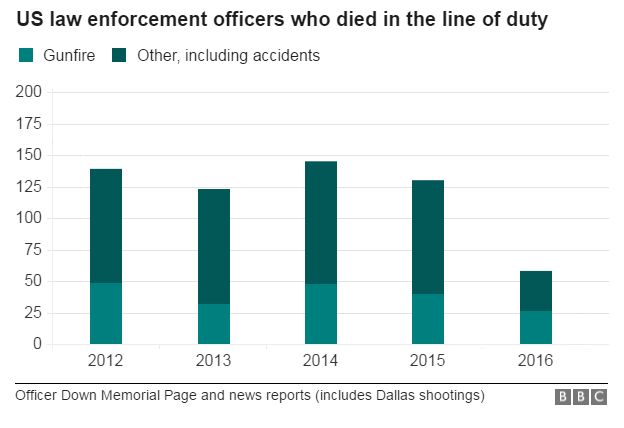Outrage has trailed recent reports by the Economic and Financial Crimes Commission (EFCC) that Governor Ayodele Fayose of Ekiti state purchased N1.35 billion properties under six months in office.
Read more:
Governor Fayose is alleged to have purchased properties to the tune of N1.35billion within six months in office. The embattled governor of Ekiti state has been having brushes with the EFCC over alleged money laundering. READ ALSO: Fayose confirms EFCC allegation on his frozen bank account The ant-graft agency recently froze the governor’s personal accounts in the Zenith Bank, Ekiti branch, over allegations that monies meant for the purchase of arms was paid into the accounts by the office of former national security adviser, Sambo Dasuki. Now, Fayose who has not been able to pay workers’ salaries for over six months has been accused of illegal acquisition of properties bought with stolen funds from the coffers of a state. While there have been calls for the governor to step-down following the accusations against him, a recent report by Sahara Reporters that Fayose himself admitted to buying properties from the “campaign fund’ donated to him by zenith bank plc and some unnamed friends has generated outrage from a section of Nigerians who have labeled the governor as a barawo (thief). READ ALSO: Unpaid salaries: Wike, Fayose, others dragged to court Though the veracity of the report has not been ascertained, the report claimed that as soon as Fayose got information that some his detained agents had confessed that they assisted him to buy properties in Lagos and Abuja he issued a statement to the effect that he owns the properties legitimately. See reactions to the report below: Meanwhile, Governor Ayo Fayose of Ekiti state has been asked to resign from office in seven days time or be chased out of the government house by people whose resources have been allegedly mismanaged in the last two years of his administration. Activist lawyer, Morakinyo Ogele who called for the governor’s resignation on Thursday, July 7, also cautioned Fayose against blaming Lagos lawyer, Femi Falana as the mastermind of his latest brush with the Economic and Financial Crimes Commission (EFCC). Ogele said the latest revelations by the EFCC that Fayose allegedly purchased property within and outside the country with public funds means he was no longer fit and proper to continue to occupy the seat of the governor.
Read more
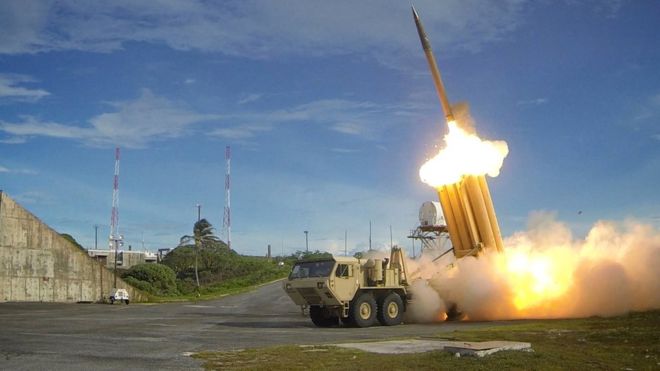 REUTERS
REUTERS
The US and South Korea have agreed to deploy a controversial missile defence system, in the wake of intensifying threats from North Korea.
The Terminal High Altitude Area Defense (THAAD) anti-missile system will be deployed solely to counter the threat from Pyongyang, a statement said.
It is unclear exactly where it will be sited and who will have final control.
China, which has consistently opposed the plan, lodged a protest with the US and South Korean envoys.
China's foreign ministry said that the THAAD system will harm peace and stability in the region, despite its ability to detect and shoot down North Korean missiles.
"China expresses strong dissatisfaction and resolute objection to this", it said in a statement on its website.
What is the Terminal High Altitude Area Defense System (THAAD)?
- Shoots down short- and medium-range ballistic missiles in the terminal phase of their flight
- Uses hit-to-kill technology - where kinetic energy destroys the incoming warhead
- Has a range of 200km and can reach an altitude of 150km
- US has previously deployed it in Guam and Hawaii as a measure against potential attacks from North Korea
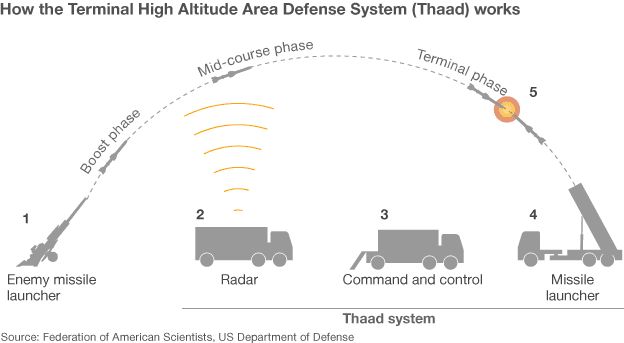
1. The enemy launches a missile
2. The Thaad radar system detects the launch, which is relayed to command and control
3. Thaad command and control instructs the launch of an interceptor missile
4. The interceptor missile is fired at the enemy projectile
5. The enemy projectile is destroyed in the terminal phase of flight
The launcher trucks can hold up to eight interceptor missiles.
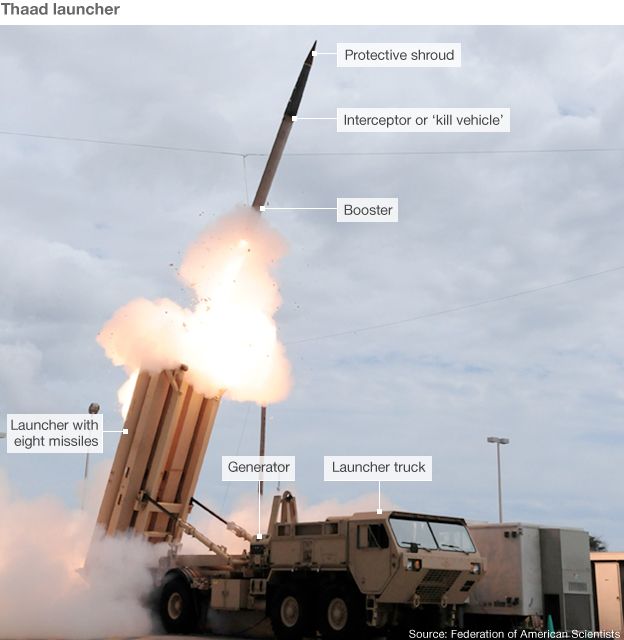
The BBC's Korea Correspondent Stephen Evans says that Beijing fears the system's radars would be able to see far into its territory. China, the North's closest ally, supported the most recent UN sanctions after North Korean nuclear and missile tests.
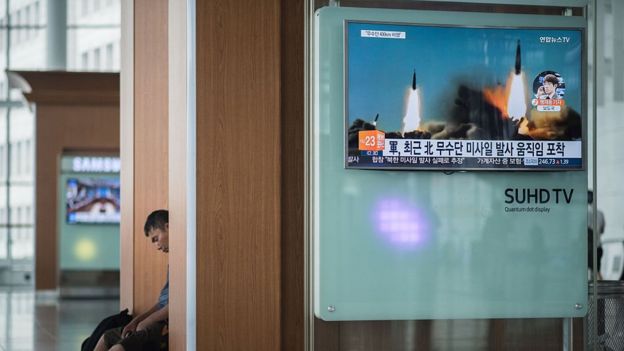 GETTY IMAGES
GETTY IMAGES
Discussions between the two countries began in February after North Korea fired a long-range missile.
"South Korea and the US have made the joint decision to deploy the THAAD system as part of a defensive action to guarantee the security of the Republic of Korea," South Korea's Defence Ministry said on Friday.
It will be deployed "as soon as possible."
THAAD is "critical" to the US' defensive strategy, Lt. Gen Thomas S. Vandal of the US Eighth Army in South Korea told AP. He added that the North's pursuit of weapons of mass destruction required that the allies made sure that they could defend themselves.
The announcement comes after North Korea denounced US sanctions on Kim Jong-un, calling it an "open declaration of war", after the leader was accused of human rights abuses.
The US had put sanctions onto the leader for the first time, calling him directly responsible for violations in his country.
Pyongyang has warned that it will close down all diplomatic channels with the US unless the blacklisting is revoked, reported news agency Yonhap.
 REUTERS
REUTERS
The measures freeze any property the individuals have in the US and prevent US citizens doing business with them.
"Under Kim Jong-un, North Korea continues to inflict intolerable cruelty and hardship on millions of its own people, including extrajudicial killings, forced labour, and torture," the Treasury statement said.
It estimates that between 80,000 and 120,000 prisoners are being held in North Korean prison camps where torture, sexual assault and executions are routine.














